With 4500 films, over 1200 Polish and international awards, and a prestigious place in the history of cinematography, it’s hard to imagine Polish documentary filmmaking without the involvement of the WFO Film Studio in Łódź. It was there that masters such as Wojciech Wiszniewski, Bogdan Dziworski, Piotr Szulkin, Jacek Bławut, and Grzegorz Królikiewicz created their works. The celebrations of the WFO Film Studio’s 75th anniversary during the 64th Krakow Film Festival is a unique opportunity to see seven exceptional films created in the Łódź-based studio on the big screen.
As part of a special segment celebrating 75 years of the WFO Film Studio (Wytwórnia Filmów Oświatowych, or Educational Film Studio), the audience at the Krakow Film Festival will see a short fiction film by Piotr Szulkin and six iconic creative documentary shorts from the 1970s and 1980s. It was a time of some of the most daring films – in terms of both form and themes. Films that spark conflicting feelings and provoke heated discussions to this day.
Subversive
They drew from tradition, creatively utilising and reinterpreting familiar cultural texts. In his short fiction film A Girl with a Devil, Piotr Szulkin reaches for the ballad “A w niedzielę z porania…” – one of the oldest examples of Polish folklore. Meanwhile, Wojciech Wiszniewski uses the classic, patriotic poem “Katechizm polskiego dziecka” by Władysław Bełza, only to turn it upside down.
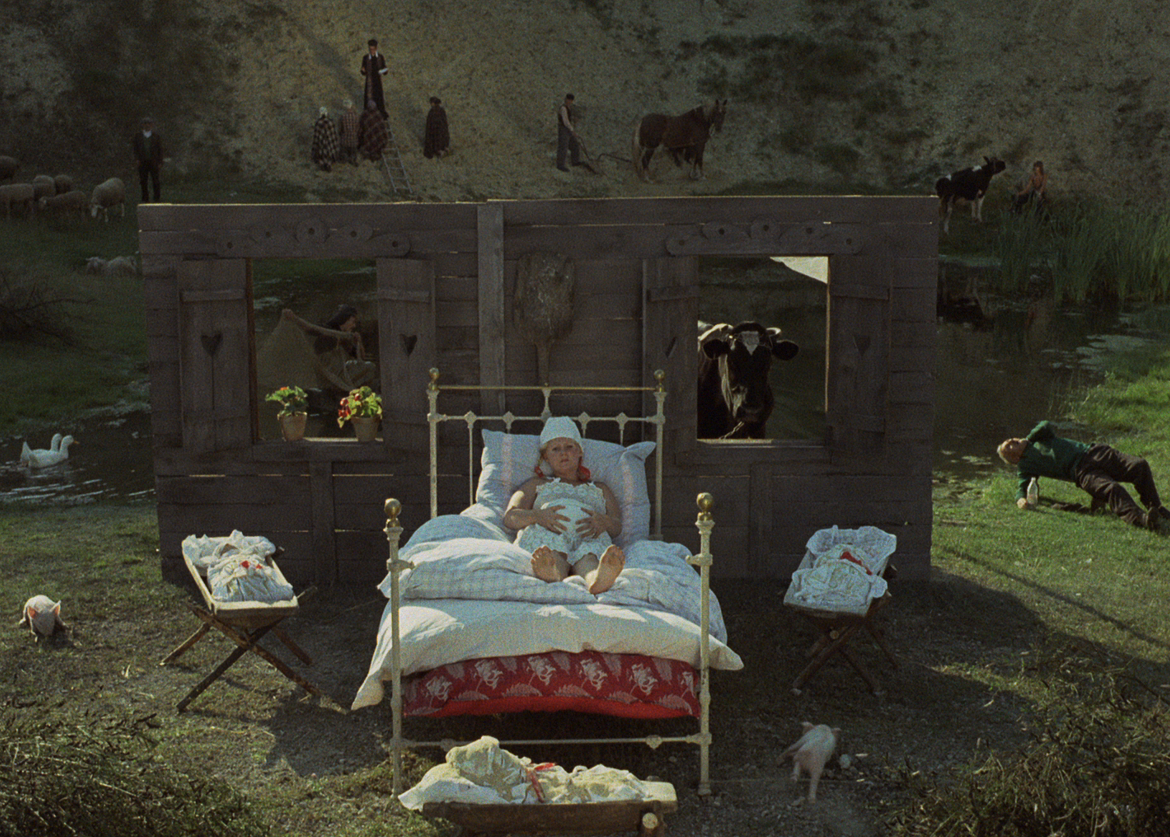
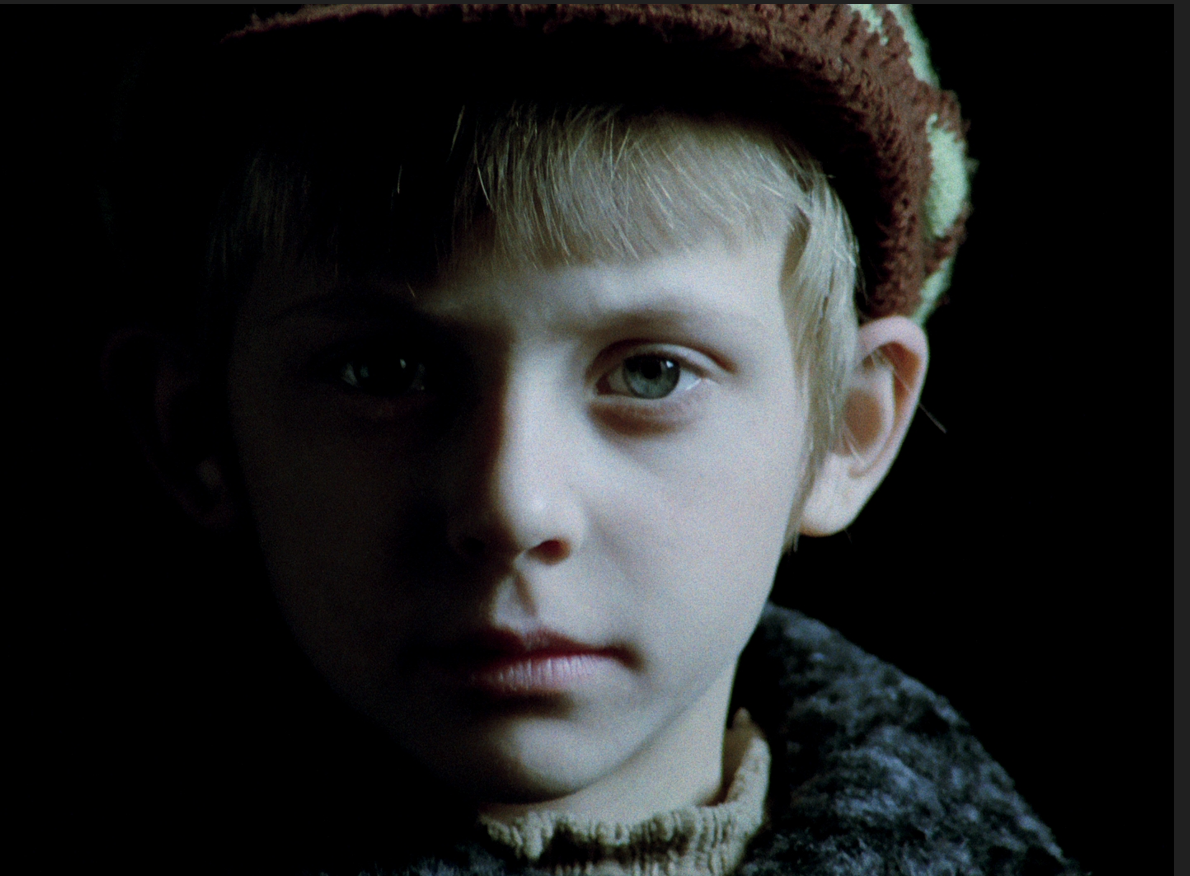
The ballad in Piotr Szulkin’s film revolves around a village girl named Kasia, who led a promiscuous lifestyle and murdered three illegitimate children. One Sunday morning, after leaving church, she encounters a young man who turns out to be the devil. He drags Kasia to hell. The staging, set design, and concept of the film remain faithful to the folkloric concept of a nativity play, imbued with the atmosphere of a morality play.
The dramatized cinematic parable, depicted using symbolic images, presents a painful diagnosis of the Polish identity in the 1970s. The questions from the mentioned “Katechizm polskiego dziecka” in the film Elementary sound shocking in the situations created by Wojciech Wiszniewski, and the children who answer them leave the final, most important question unanswered.
Formal
Slow-motion, repeated shots, experiments with sound, editing, and archival footage. Created at the WFO Film Studio in Łódź, A Lump of Sugar by Jacek Bławut and Hockey by Bogdan Dziworski are formal gems that continue to surprise with their creativity and directorial bravado.
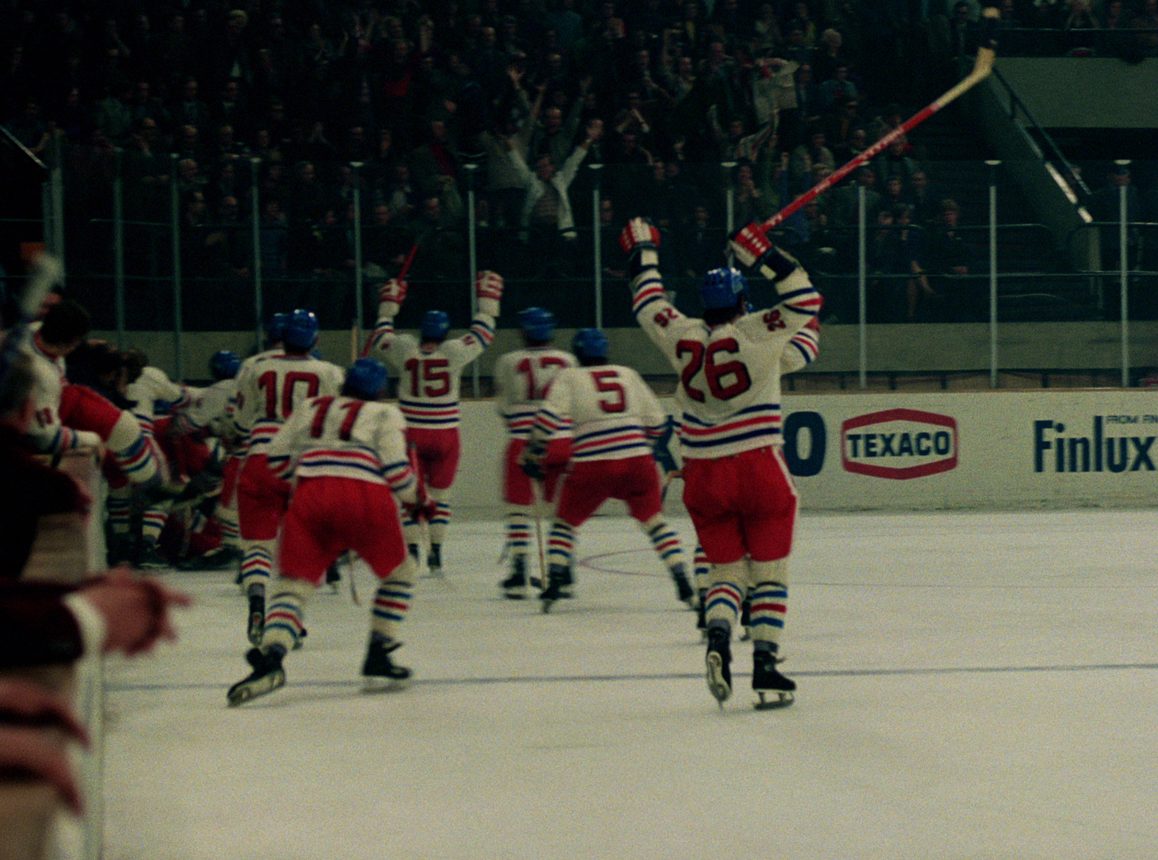
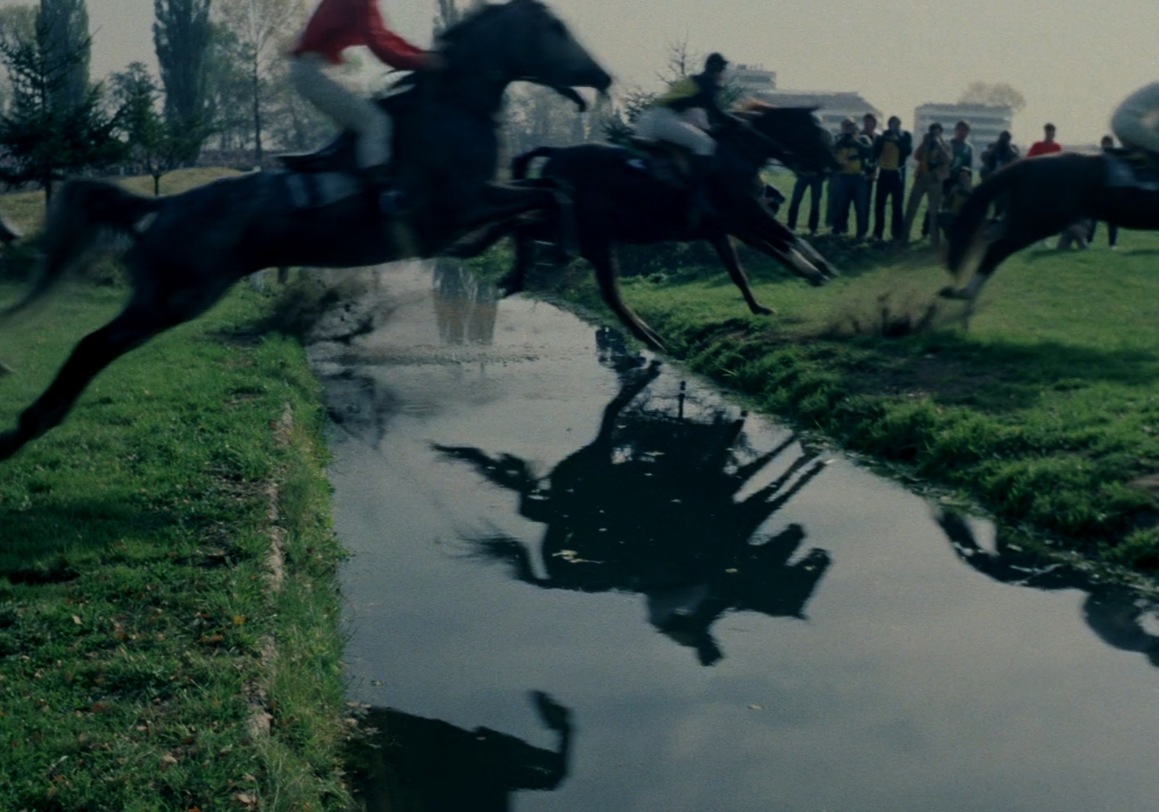
A gripping film depicting the famous Grand Pardubice Steeplechase in the Czech city of Pardubice, it shows the effort, fear, pain, and even death – the price racehorses have to pay for providing entertainment to humans. Jacek Bławut’s film employs various expressive techniques from slow-motion and freeze-frame shots to close-ups, repeated shots, juxtaposing black and white and colour footage, to an almost deafening silence contrasted with the murmur of spectators or the terrifying neighing of a frightened animal. Not a single word of commentary is uttered throughout the entire film.
The cinematic portrayal of sports rivalry during the Ice Hockey World Championships in Katowice gave Bogdan Dziworski a reason to say something about the ‘dark side’ of sports. Through expressive cinematography, the dynamic shots from the matches reveal the brutality of players striving for victory by any means necessary. These battle scenes from the film Hockey are juxtaposed with children taking their first steps on the rink at a hockey school, lending the entire film a particularly disturbing message.
Peculiarities
Exceptional artists demand unconventional bio pics. Andrzej Papuziński and Piotr Andrejew crafted short yet remarkably original pieces on two Polish graphic artists, Franciszek Starowieyski and Daniel Mróz. Meanwhile, Andrzej Czarnecki chose a man professionally engaged in rat extermination as his subject, creating one of the most powerful portraits in the history of Polish documentary filmmaking.
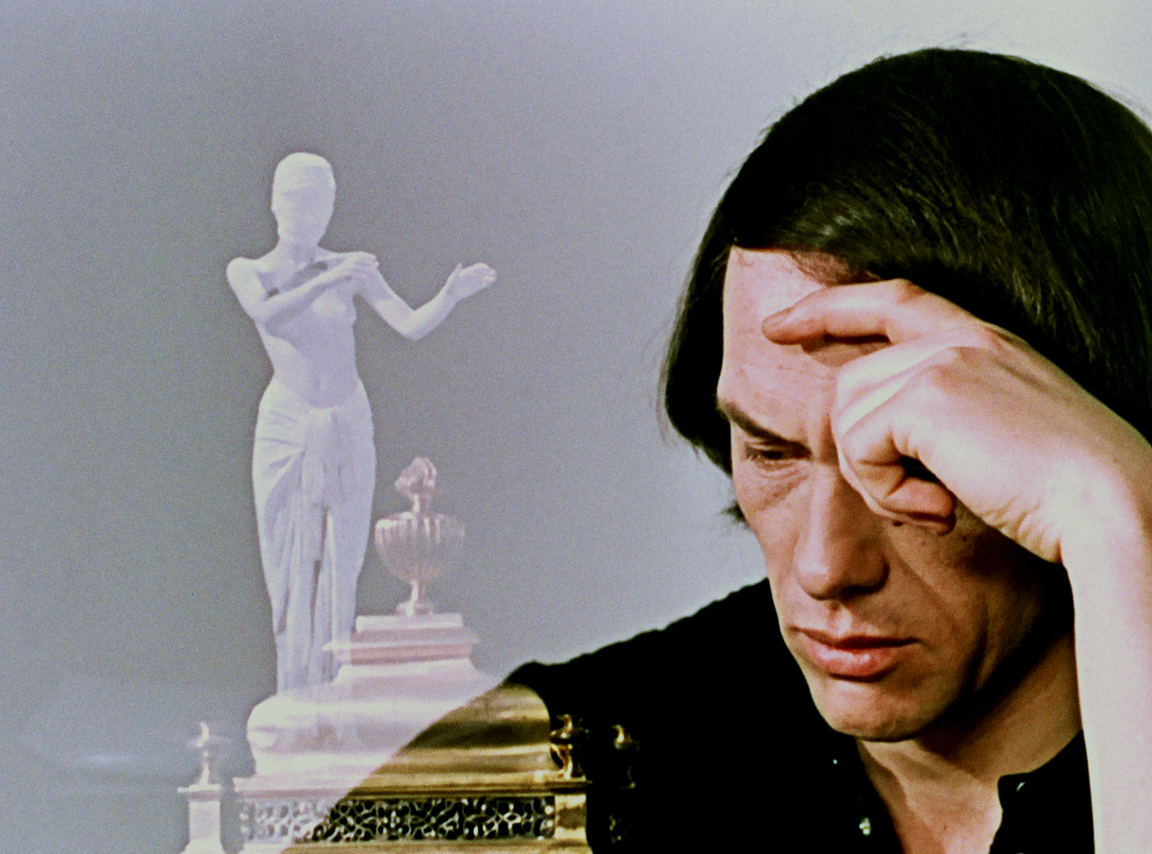
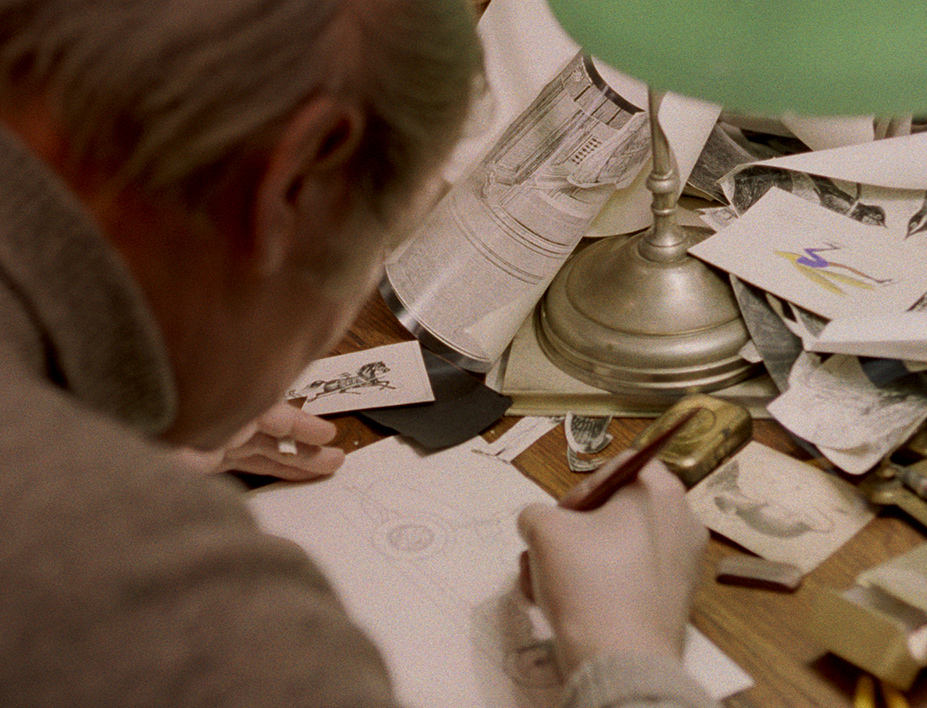
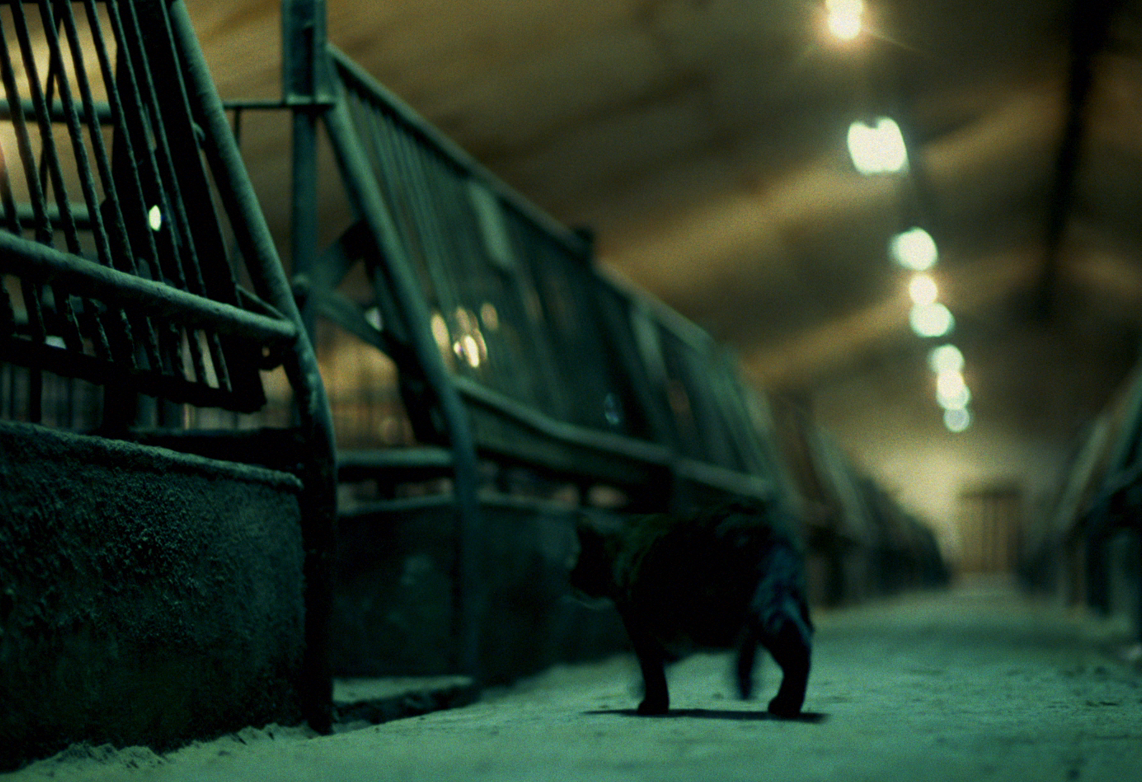
Franciszek Starowieyski, a graphic artist, illustrator, and set designer, sometimes used the pseudonym Jan Byk. The creators of the film The Bull’s-Eye sought to delve into the world of the artist’s vision and imagination, the source of his original and eccentric creativity.
Polish graphic artist and set designer Daniel Mróz, the protagonist of Frost is Coming, became famous as an illustrator of fairy tales and satires and the author of illustrations for the magazine Przekrój (1951–1978), as well as for the works of F. Kafka, J. Verne, S. Lem, and S. Mrożek. His work was characterised by surrealism and grotesque. The film intertwines staged, fantastical and visionary sequences of reflections on the essence of art with shots of the artist’s studio and his statements. Daniel Mróz created the title cards for Piotr Andrejew’s film.
The titular rat-catcher meticulously presents the methods of his work during one of his jobs. They must be carefully devised because rats are highly intelligent creatures and ‘it’s not easy to beat them’. Andrzej Czarnecki’s Rat Pack is a multifaceted film that makes an impression not only because of its subject matter but also due to its incredible setting (a huge slaughterhouse).
Films presented as part of the WFO Film Studio’s 75th anniversary:
- Rat Pack, dir Andrzej Czarnecki, Poland, 20’, 1986
- A Lump of Sugar, dir. Jacek Bławut, Poland, 9’, 1987
- Frost is Coming, dir. Piotr Andrejew, Poland, 20’, 1973
- Hockey, dir. Bogdan Dziworski, Poland, 12’, 1976
- Elementary, dir. Wojciech Wiszniewski, Poland, 8’, 1976
- A Girl with a Devil, dir. Piotr Szulkin, Poland, 16’, 1975
- The Bull’s-Eye, dir. Andrzej Papuziński, Poland, 13’, 1971
The 75th anniversary of the WFO Film Studio at the 64th Krakow Film Festival will be accompanied by a special anniversary concert.
Passes for the 64th Krakow Film Festival are on sale now!
The Krakow Film Festival is on the exclusive list of qualifying events for the Oscars® in the categories of short film (live action, animated, documentary) and documentary feature, as well as a recommending event for the European Film Awards in the same categories.
The Kraków Film Festival is organised with the financial support of the Municipality of Kraków, the Ministry of Culture and National Heritage, the European Union’s Creative Europe program, the Lesser Poland Province, the Polish Film Institute. The festival is co-organised by the Polish Filmmakers Association.
The 64th Krakow Film Festival will be held in cinemas from 26 May to 2 June and online across Poland on the KFF VOD platform from 31 May to 16 June 2024.